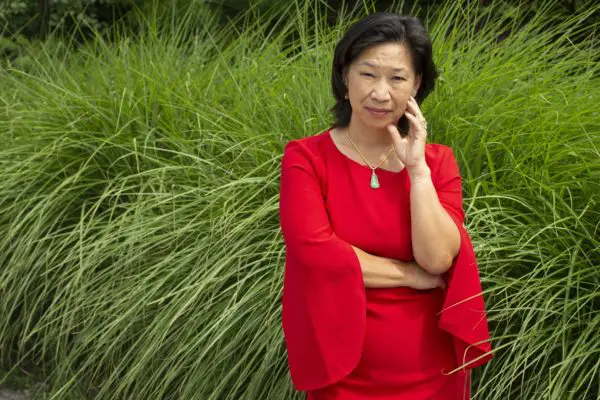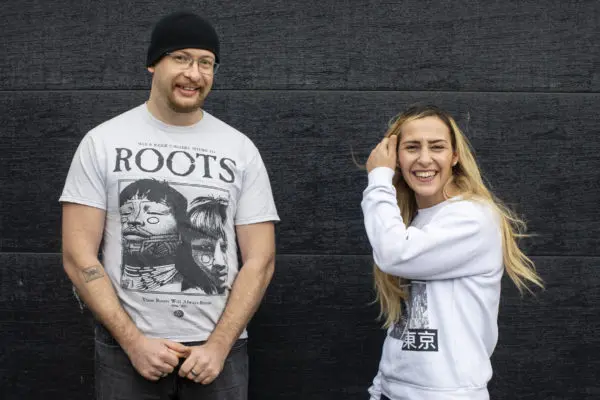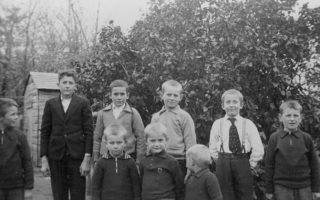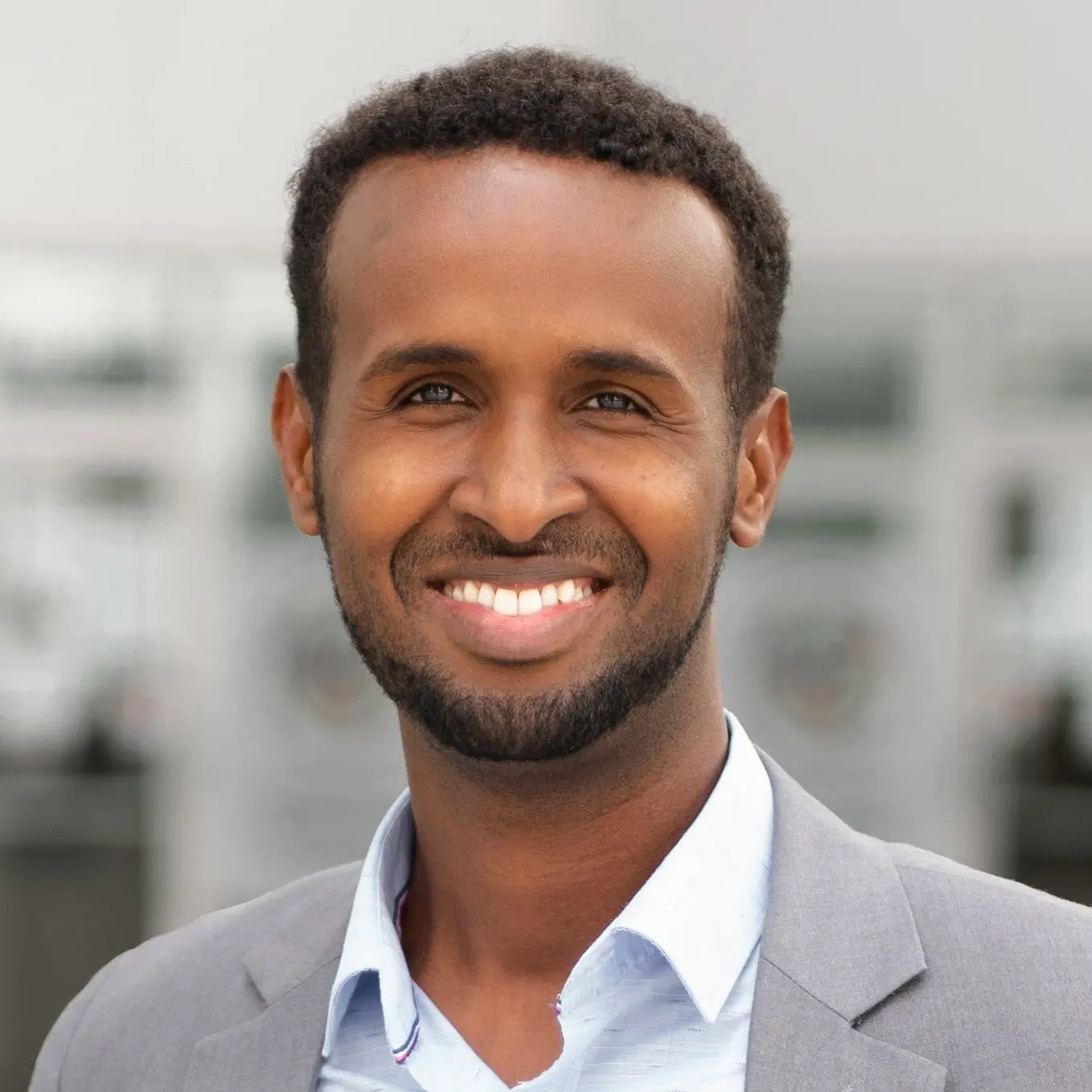
38-year-old Ali Abukar is the Chief Executive Officer of Saskatoon Open Door Society (SODS), a charitable organization that helps refugees and newcomers integrate in Saskatoon. Photo courtesy of SODS.
By Gisele Nyembwe
38-year-old Ali Abukar considers himself a privileged man. He is the Chief Executive Officer of Saskatoon Open Door Society (SODS), a charitable organization that helps refugees and newcomers integrate in Saskatoon.
His rise to the managerial position, though a source of pride, is not what makes him feel privileged. Instead, Ali says it is a lifetime of experiences as a Black, Muslim and former refugee man that has shaped the person he is today.
To mark Black History Month, UNHCR Canada caught up with Ali about the ongoing public debates on anti-Black racism following the death of George Floyd and the Black Lives Matter protests in the U.S., Canada and across the world.
“Unfortunately, racism is an ongoing reality for people of colour. They show much resilience in their everyday lives, but the impact of racism is unimaginable. I think racism is the source of inequity and injustice in our modern society,” Ali said.
“My own personal experiences, especially with covert racism, have helped me understand how racism works. I use these experiences as an opportunity to speak up. I consider myself to be privileged, and I use that privilege to create spaces for people of colour’s voices to be heard in places where they are not heard.”
Ali sits on different committees in his community, including the City of Saskatoon’s Diversity, Equity and Inclusion Advisory committee, the Saskatoon Police Advisory Committee on Diversity and Saskatoon Public Library’s Inclusion Advisory Committee. He believes that having a seat at these tables helps him ensure that Black people and other people of colour have a say in decisions that impact them directly.
But Ali was not always driving change. He had to overcome obstacles ever since he left his native Somalia as an 18-year-old back in early 2001, fleeing the civil war, insecurity and violence.
His journey first took him to Egypt, where he spent 10 years as a refugee, and then brought him to Canada through the sponsorship of a family member in the summer of 2011. In the years since, he has earned a master’s degree as a social worker and has built a successful career.
Somalis have been leaving their country for over three decades due to ongoing conflict, difficult economic conditions, drought, and famine, and they now constitute one of the largest diasporas in the world.
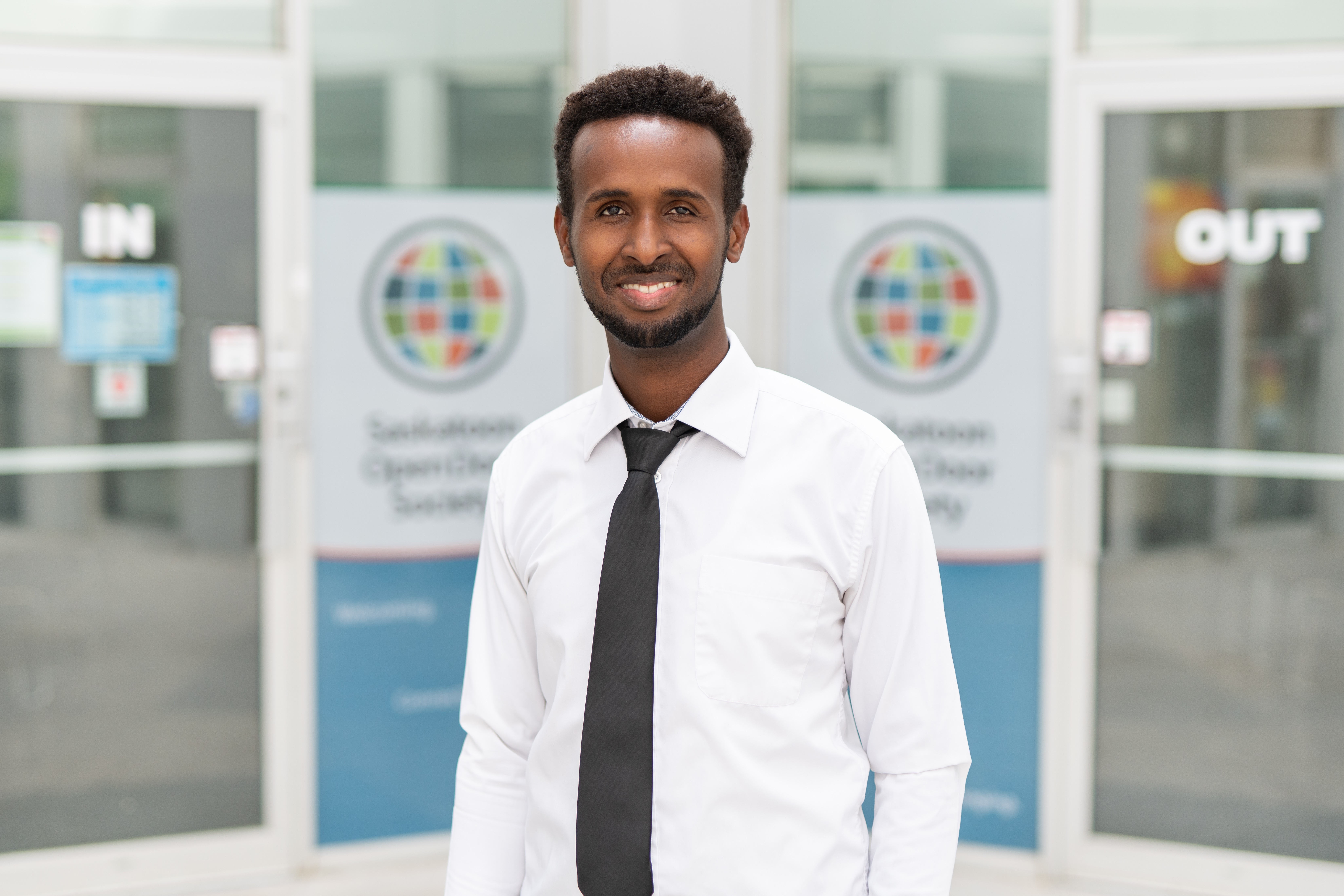
Ali Abukar poses for a picture by the main entrance of the Saskatoon Open Door Society (SODS). Photo courtesty of SODS.
Ali believes we are at a critical time in our conversations about anti-Black racism – and keeping the momentum is necessary to achieve meaningful reform and a truly inclusive and equitable society.
“We have an opportunity to evaluate public institutions and the systems we have taken for granted for so long, to reflect on the impact they have on all of us, especially on Blacks, Indigenous people and people of colour, and demand meaningful changes.”
While Ali notes a moment of huge awakening to racial inequities in many organizations and the adoption of significant reforms, he questions if all have the strength to affect concerned groups.
“Many organizations will try to diversify their boards and committees to show their commitment. I want to warn against tokenism and simply bringing diverse people for the sake of diversity without meaningful changes and consultations with these groups.”
Ali thinks there are larger issues at play which require everyone’s participation in the dialogue, not just Black people or members of underrepresented groups – this dialogue must represent all voices and integrate inclusive mechanisms that inform decision-making at all levels.
“We should understand that not being racist is not enough anymore,” he concludes. “We all should be anti-racists to dismantle systemic racism in our society.”



